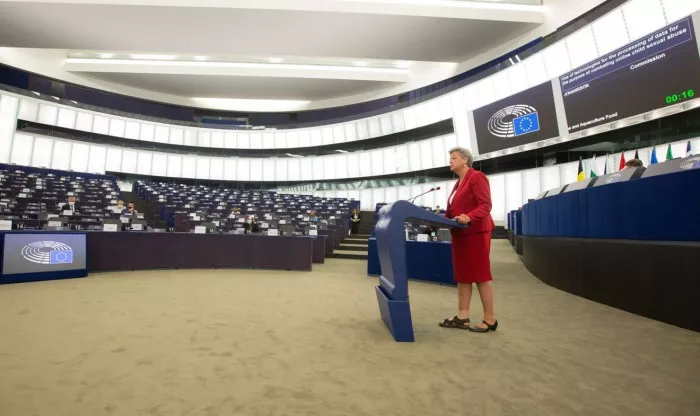Hildegard m ü ller, President of the German automobile industry association, said that Europe did not have enough charging infrastructure to support the ban, and it was too early for the European Parliament to act, adding: "this will increase the cost of consumers and put consumer confidence at risk."
Author: Ying Yiru

The German automobile industry protested the decision of the European Parliament to ban the sale of gasoline and diesel vehicles before 2035, saying it was harmful to the market and consumers.
On June 8, members of the European Parliament voted to ban the sale of new diesel vehicles in the EU by 2035. The decision is equivalent to banning car companies from selling new cars powered by gasoline or diesel in 27 countries or regions.
If an agreement is reached, it actually means the end of the era of fuel vehicles in Europe and the complete termination of a mode of transportation that has dominated for more than a century. This will also be a key victory for the EU's climate agenda. Transportation has proved to be one of the most difficult industries to decarbonize.
However, the German automobile industry said in a statement that the decision of the European Parliament "is not conducive to citizens, the market, innovation and modern technology".
According to media reports, Hildegard m ü ller, President of the German automobile industry association, said that Europe does not have enough charging infrastructure to support the ban, and it is too early for the European Parliament to act. M ü ller said: " this will increase consumer costs and put consumer confidence at risk. "
The German automobile association is not the only body that opposes it. It is said that passenger cars account for 12% of all traffic related carbon dioxide emissions in the EU, but overall, traffic emissions account for about 25%.
The German Association of automobile drivers (ADAC) said that Europe's "ambitious traffic climate protection goals" could not be achieved by electric vehicles alone.
The European Automobile Association (ACEA) also said that the market fluctuation is too large to accept the ban on new combustion vehicles before 2035.
Oliver zipse, President of ACEA and chief executive officer of BMW, said: " given that the global market is experiencing fluctuations and uncertainties every day, it is still at an early stage, and any long-term supervision for more than a decade is premature . *"